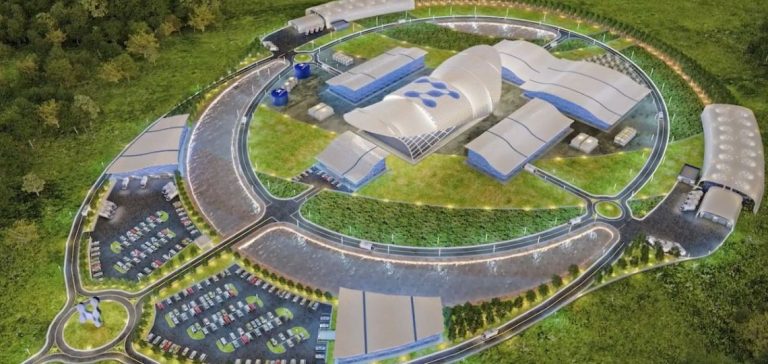The US Export-Import (Exim) Bank has approved a final commitment of a USD98 million loan to finance pre-project services for the development of Romania’s first small modular reactor (SMR) project. This project, utilizing NuScale technology, will be located at the site of the former Doicești coal plant, roughly 90 kilometres northwest of Bucharest. Once completed, it will feature a total installed capacity of 462 MWe, spread across six modules with 77 MWe each.
The project is expected to generate significant local employment opportunities, creating nearly 200 permanent jobs for operation and maintenance, 1500 construction jobs, and 2300 manufacturing and component assembly jobs throughout the 60-year lifecycle of the facility. The SMR deployment is part of Romania’s broader strategy to reduce its carbon footprint and shift from coal-based energy to cleaner technologies.
Partnership Development
The partnership between the USA and Romania for the deployment of small modular reactors began in March 2019. A memorandum of understanding (MoU) was signed between Nuclearelectrica, Romania’s state-owned nuclear power corporation, and NuScale Power, to evaluate potential developments. Following this, a teaming agreement was formalized in 2021 to construct a NuScale VOYGR-6 power plant by the end of the decade.
In June 2022, both parties signed another MoU to initiate Phase 1 of a Front-End Engineering and Design (FEED) study. The FEED Phase 1 was successfully completed in 2023, focusing on site selection, technical specifications, and initial engineering design.
Engineering and Design Agreements
To move forward, Nuclearelectrica and RoPower Nuclear, a joint venture owned by Nuclearelectrica and Nova Power & Gas, signed the FEED Phase 2 contract with Fluor Corporation in July 2024. This agreement mandates Fluor to provide engineering services, update cost estimates, and deliver a refined project schedule, which will be crucial for the final investment decision.
The Exim Bank’s USD98 million loan will cover these pre-project services under its Engineering Multiplier Program. The transaction is projected to support over 400 jobs within the United States, underlining Exim’s mission to promote American exports and workforce expansion.
International Interest and Financial Support
The Romanian SMR project has attracted interest and financial backing from several international players. In May 2023, Exim and the US International Development Finance Corporation (DFC) issued Letters of Interest for potential funding amounting to USD1 billion and USD3 billion, respectively, aimed at supporting the project’s deployment. Additionally, public and private partners from Japan, South Korea, and the United Arab Emirates have expressed their interest, bringing potential early-stage support to USD275 million.
NuScale SMR Deployment: Strategic Impact
The Romanian government views this project as a critical component of its energy transition strategy, replacing aging coal infrastructure with advanced nuclear technology. The development is expected to position Romania as a leader in the deployment of small modular reactors in Eastern Europe. The partnership with NuScale and the US financial institutions highlights the strategic alignment between Romania and the USA in enhancing energy security and reducing carbon emissions through nuclear power.
Key Stakeholders
The main entities involved in the project include Nuclearelectrica, RoPower Nuclear, and Fluor Corporation. Samsung C&T Corporation and Sargent & Lundy are also contributing to the project’s development, focusing on engineering support and project management.
In addition to their financial support, Exim’s involvement signifies a broader strategy to leverage US expertise in energy technologies to strengthen international alliances. The Romanian SMR project is anticipated to be a blueprint for future deployments across Europe, providing a reliable and scalable alternative to traditional nuclear power plants.





















